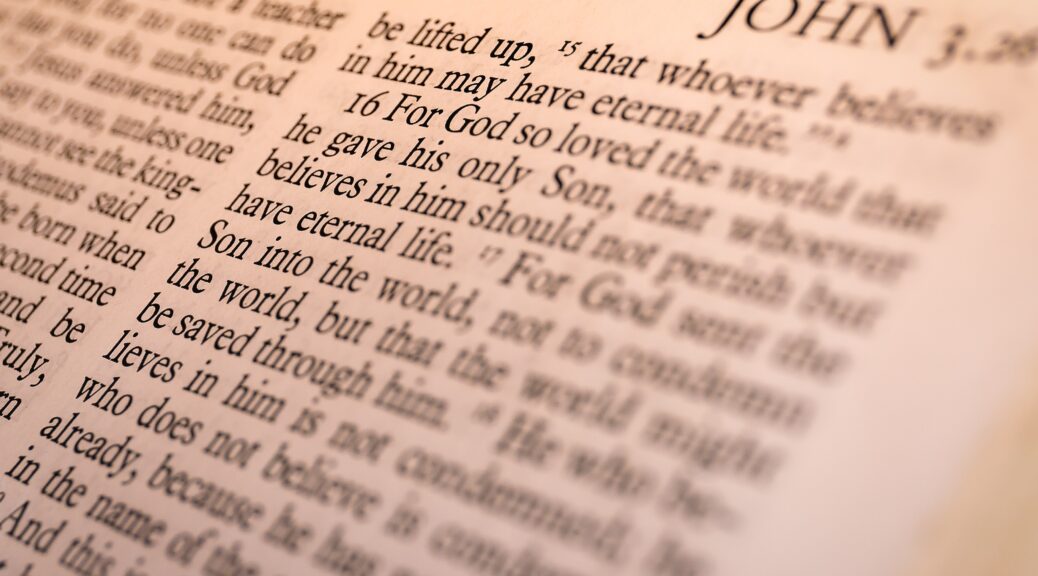
Are you Sure?
I’d not long been a Christian when I found myself sat in a house with a student group. The person giving a talk would occasionally mention a Bible reference, then point to someone and ask them to quote it. I was terrified! What if he asked me? And where was I – in a group of spiritual giants!
Fortunately, I didn’t get picked on, and I later found out why. After the meeting I asked how come everyone seemed to know every verse in the Bible, and was let in on the secret. There were a couple of Scripture Memory systems that consisted of just over 60 verses that people had learned, or were learning.
I immediately asked if I could do one and was given a short series (5 topics) called Lessons on Assurance.
The first topic was Assurance of Salvation. 1 John 5:11-12
For a new Christian this is a great verse, but it’s also a topic that we have to keep coming back to. Being assured, certain, that we are saved is vital if we are to grow in our faith, and particularly when we face difficulties.
It turns out that this was a hot topic during the Reformation. The Roman church at the time did not want people to be assured of their faith as the threat of losing one’s salvation was meant to keep them on the straight and narrow. In fact, they took the view that to be assured was considered the sin of presumption. One of the charges made against Joan of Arc at her trial in 1431 was:
“This woman sins when she says she is as certain of being received into Paradise as if she were a partaker already of … glory, seeing that on this earthly journey no pilgrim knows if he is worthy of glory or of punishment, which the sovereign judge alone can tell.”
That makes sense if we have to earn our salvation, but the point of the Reformation was that we are saved by faith alone, not because of works. God wants us to be thankful, full of joy, strong in our faith – things that are impossible unless we’re sure that we’re saved.
Even today there are some who teach that we can lose our salvation. This occurs, they say, as a result of something we do or don’t do (not that God might suddenly and arbitrarily remove it from us).
Apart from being contrary to Scripture, it means that assurance is impossible, and that our salvation is ultimately based on what we do.
Knowing for certain was the goal of John’s letter. The next verse after my newly-memorised ones says that he wrote his letter so that we “may know that we have eternal life” (1 John 5:13).
So does that mean that once we’re saved we can do whatever we like, sin as much as we like, with impunity?
That’s exactly the argument Paul addressed in Romans 6. And his response? “By no means!” (Rom 6:2)
I think it helps here to look at two ‘theological’ terms – Justification and Sanctification.
Justification is, simply, being put right with God. Our sins have been put away by Christ’s sacrifice so that those who believe and accept that are declared righteous. Way back in the Old Testament, Abraham “believed God and it was counted to him as righteousness” (Gen 15:6, referenced several times in the New Testament, Rom 4:3; Gal 3:6; James 2:23).
It is a one-time, definitive declaration that we are counted righteous – like a legal ruling in God’s courtroom.
Sanctification, on the other hand, is a process. An ongoing work of God in our lives, in which we participate, where we are being made more Christlike, more holy.
I read this recently: “You cannot be more justified that you are presently. But you can and will be more sanctified, and one day you will be perfectly sanctified”.
We are not justified because we make ourselves holy, that would be earning salvation. Rather we are sanctified because we have been justified, and that by grace alone. Growing in faith and love and holiness are marks or consequences of our having been saved. Our works prove and demonstrate that we have been saved, but they don’t earn us anything.
There are certainly days when we don’t feel that we’re worthy of God’s favour – I don’t know that that ever really goes away. It sometimes goes quiet for a while but seems to inevitably come back. The problem is we focus too much on ourselves.
Here’s a quote from Sinclair Ferguson:
“It is misleading to say that God accepts us the way we are. Rather, he accepts us despite the way the way we are. He receives us only in Christ and for Christ’s sake. Nor does he mean to leave us the way he found us, but to transform us into the likeness of his Son.”
This is something that God will bring to completion, and which gives us both hope and motivation.
1 John 3:2
It seems to me that being sure of our salvation comes in three areas:
- Faith – believing that Jesus died for us (John 5:24)
- Fruit – Gal 5:23,24 especially love – for God, for his Word, and for fellow believers
- Fatherhood – the inner witness of the Holy Spirit that we are God’s children (Rom 8:16)
Oh, and yes, I did go on to learn all the 60 verses!